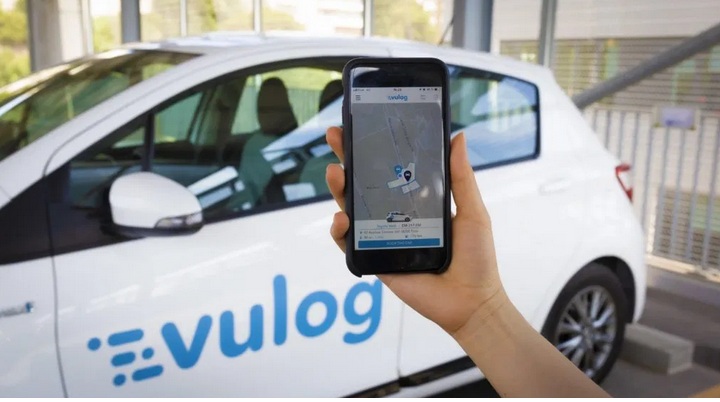Paris, 16 September 2019 – As the shared mobility movement has grown in popularity in recent years, so the size of individual car-sharing fleets has increased significantly. The findings are revealed by Vulog, the company whose technology underpins successful car-sharing schemes such as Kia’s WiBLE, PSA’s Free2Move and GreenMobility.
In 2015 the average fleet size for car-sharing schemes was 325 cars. By 2018, the average fleet size was 438 cars, rising further to 546 cars by 2019*, 68% bigger than five years earlier.
This trend for larger fleets is likely to accelerate, claims Vulog. In June 2019, for example, Volkswagen’s WeShare scheme launched in Berlin with 1,500 vehicles, and the company has plans to launch soon with similar fleet sizes in both Prague and Hamburg.
The shared mobility sector has grown at a rapid rate in recent years. As well as major global brands entering the market, other brands have joined forces, such as Mercedes and BMW with their Share Now venture. These join numerous start-up operations that have introduced shared mobility to cities across the globe, from Vancouver to Copenhagen, and from Antwerp to Auckland. Also, shared mobility has quickly evolved since 2017 to include millions of electric kick-scooters, mopeds and bicycles in cities around the world.
For every operator, fleet size is one of the most important determinants of success for car-sharing schemes according to Vulog. The density of coverage that an operator offers users in a city impacts on vehicle availability and proximity. Larger fleet sizes also reflect the rapid evolution of the car-sharing business model from reservation-based round-trip schemes to those offering instant-access free-floating flexibility. The latter requires the high on-demand availability of cars.
“Modern consumers are used to instant-access, flexible services in all aspects of their life, and in mobility that means a free-floating scheme with exceptional reliability and availability,” says Gregory Ducongé, CEO of Vulog. “A user won’t give up their personal car unless they are confident that they will always find a shared car nearby when they want one. The only way to maximise the reliability of a scheme – and therefore generate user loyalty – is greater density of coverage.”
“In the early days of shared mobility, we used to see schemes being trialled with small fleets, but they were stifling their own success and not seeing an accurate picture of the potential for their service. Our data shows that over the past five years, operators are avoiding this mistake, are using greater intelligence from previous start-ups’ experiences, and are having the faith to launch with larger fleets.”
Fleet size is just one of a number of critical factors identified by Vulog, the market-leading shared mobility technology provider, in its latest whitepaper, “Seven key ingredients to car-sharing success”. The paper addresses the most important factors for profitable car sharing schemes.
Vulog is the global leader in shared mobility software, and its advanced technology powers 25 services in cities across five continents. The company’s AiMA platform integrates and connects various critical functions that enable car sharing schemes to operate smoothly. From vehicle scheduling and fleet management to payment processing and parking registration services, the real-time data-driven technology stack delivers a seamless, responsive service to users and operators.
www.vulog.com-Ends-
Source: https://www.e-motec.net/
CUT COTS OF THE FLEET WITH OUR AUDIT PROGRAM
The audit is a key tool to know the overall status and provide the analysis, the assessment, the advice, the suggestions and the actions to take in order to cut costs and increase the efficiency and efficacy of the fleet. We propose the following fleet management audit.




